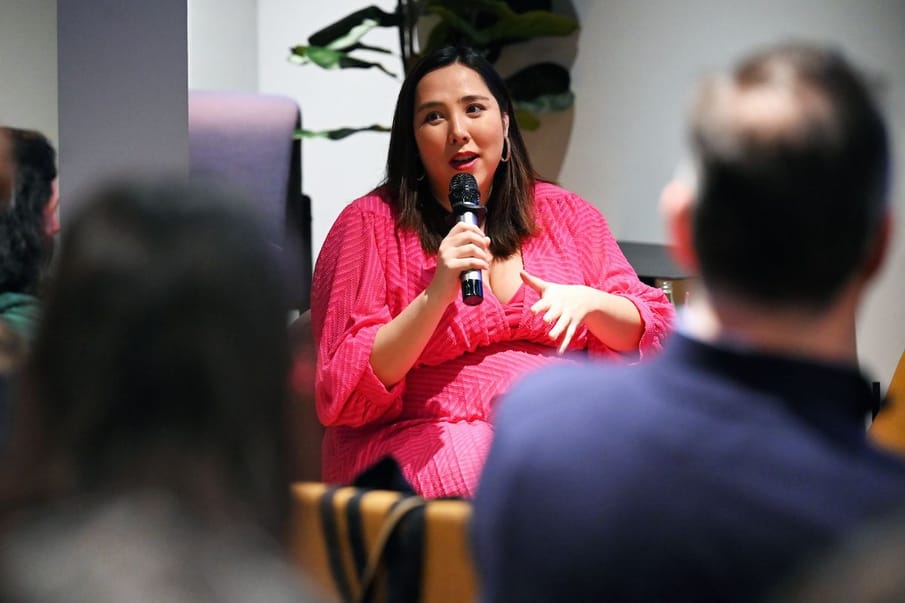How to spot the signs and adjust the balance when you feel your efforts with friends or relationships aren’t being reciprocated
When thinking about one-sided relationships, a specific conversation I had with a friend comes to mind. I was 19 years old, and a friend from university was upset because they felt another friend wasn’t putting in the same amount of effort with them. He said that his most important value in friendships and romantic relationships was reciprocity. I remember that conversation more than a decade later because, as a former people-pleaser, it was the first time that I had ever even considered whether my friends were giving back to me in the same way I was giving to them. If you walk through the world wanting friends so badly, like I did, you never even stop to wonder if they are actually a good friend to you.
The same was true in my dating life. I would give so much in relationships to make them stay, but I never asked if they were doing the same for me. The reality is if you are willing to go above and beyond for the people around you, there is usually a deep-seated issue that sits underneath it. In these situations, it is hard to reciprocate, because the reason you are going above and beyond is not purely out of love, but more out of fear of rejection and abandonment. By being seen as ‘useful’, you believe you will become more essential to someone else’s life. It wasn’t until I grew my self-esteem and started to believe that I deserved the same effort and energy that I was putting in, that I stopped to question all the relationships around me.
One of the main ways one-sided relationships can be noticeable is around who initiates things. If you are the only one striking up a conversation over text, or instigating plans to meet up, it can feel like you are the only one invested in the relationship.
We all want to feel wanted, but it’s important to remember that just because a person does not make the first move, doesn’t mean they don’t care. Even if they don’t initiate, if they always pick-up, reply, and ultimately say yes to plans, they’re putting in effort.
It’s understandable to want equal effort from our closest connections, but some people are naturally more gifted at planning and organising. We also have to remember that everyone goes through busy periods in their life where reaching out to others gets put on the back burner. So, it’s worth trying to recognise if this is a pattern of behaviour or a blip?
If you do feel like this one-sided effort is an ongoing issue and it’s getting to you, try to communicate that. Let the person know that you would appreciate it if they called more. Tell the person you’re dating that it’s their turn to make the plan, and how essential it is for you to feel like the effort you put in is being reciprocated.
Another point to consider, though, is that people can make an effort in different ways. You might call and initiate plans more, but they might demonstrate their love by remembering your birthday or sending gifts when they know you are low. There are a variety of love languages that people can speak in order to show they care, but often we only notice the ways in which we demonstrate love or like to receive it, and overlook how others express themselves.
But a clear sign that a relationship is becoming one-sided is when communication fails to find a balance. If you notice that they only call or talk when it’s about them, it can start to feel like you are acting as a free ‘therapist’. Conversation should go two-ways, and if they never ask about you or what’s going on in your life, then bring that to their attention.

I remember a friend who would often call after work, usually after a dilemma at her job had upset her. We’d chat through her problem, but by the time it seemed resolved and she asked how I was, suddenly she’d inform me that she had just got home, and would call back the next day. Only, she never would call back, that is until she had another problem to discuss.
After this happened a few times, I voiced my upset. I explained my feelings, and told her that it started to feel uneven. This conversation gave her the opportunity to notice the disparity in our relationship and change it.
It’s always better to be direct when you have an issue with the people in your life. Tell them what you want and give them a clear roadmap on how they can improve your relationship. Everyone has different expectations and things they value. Everyone has different boundaries, and if you tell people what you need then that’s a better assessment than seeing whether they can guess or notice that you’re annoyed with them. Ultimately, whether they adapt and change their behaviour upon understanding your concerns will determine whether the one-sidedness was accidental, or a key feature in your relationship.
Overall, what’s important to note in situations like this is the pattern. It’s impossible for every interaction to be exactly 50:50, but over the course of a relationship, it should even out. There will be times in a person’s life where they will need more support than you will, whether that’s mental health or a period of grief, but if that is not reciprocated in the long-term, it can quickly deteriorate the connection. In those situations, it’s crucial to know what you deserve: a relationship where the love goes both ways!
Love Michelle x
Subscribe to Happiful to make sure you don't miss out on Michelle's fantastic regular column!


Comments